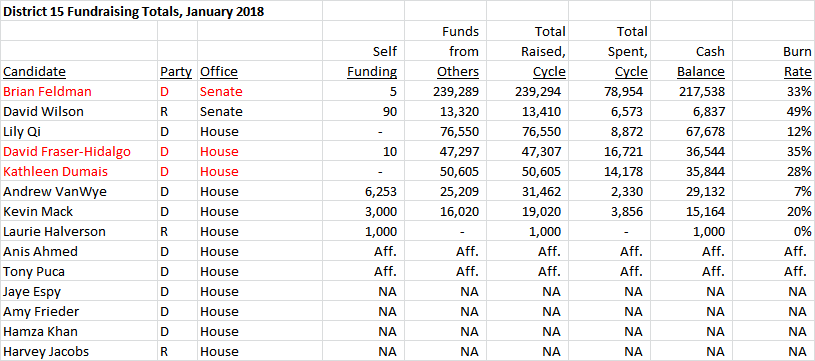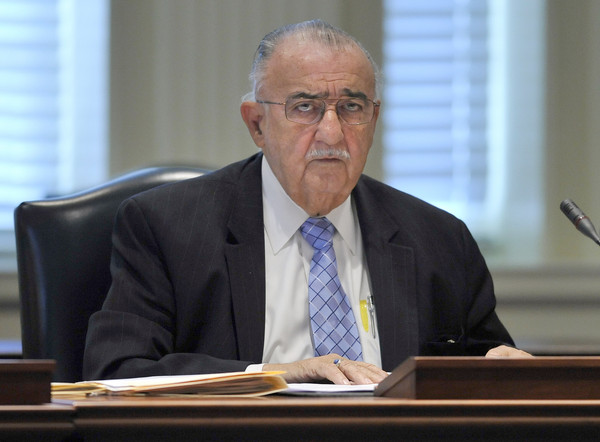As the session drew to a close, the prospects for marijuana decriminalization looked grim despite its passage by an overwhelming majority in the Senate. Judiciary Committee Chairman Joe Vallario had once again put the kibosh on the bill.
At Vallario’s behest, the Committee amended the bill to replace it with one that would create a task force to study the issue. As we say in Montgomery County, paralysis by analysis. So how did a bill decriminalizing the possession of small amounts of marijuana end up passing the House on Saturday?
First, Vallario made a critical mistake by passing any bill out of Committee at all. Though probably necessary to mollify committee members, it also provided decriminalization supporters a key opportunity to amend the bill back to its original intent.
Various advocates, including Dan Furmansky who has been lobbying on this issue, began to press legislators to put up a fight on the floor. Del. Eric Luedtke agreed to sponsor an amendment to overturn the Committee’s decision and restore the original intent of the bill.
Luedtke was a good choice. Del. Heather Mizeur has been active on this issue but her name on the amendment would have immediately doomed it due to gubernatorial politics in this election year. Ditto for Del. Jolene Ivey. Their willingness to step back and allow others to take the lead aided the effort greatly.
Bill advocates quickly began talking with Del. Keiffer Mitchell and Del. Nat Oaks who reached out to the Black Caucus. As this was going on, time passed and decriminalization proponents made the call not to offer their amendment on second reading, as it would have received only a couple dozen votes and died.
Economic Matters Committee Chairman Dereck Davis gave the effort a major boost when he advocated fighting for decriminalization on the floor to the Black Caucus and made a statement to that end in the media. Support from a respected member of leadership helped propel the amendment forward.
Key legislative advocates, such as Dels. Luedtke, Oaks, Mizeur, Ivey, David Fraser-Hidalgo, and Alonzo Washington, organized a whip operation supported by various advocacy groups like the ACLU. Republican Del. Mike Smigiel agreed to work on libertarian members of his party.
By the time they had close to 40 supporters, Vallario dug in his heals and made clear that he expected members of his committee to stick with him. But the House leadership forced him to ask the House to special order the bill, which it did, so he could negotiate with decriminalization advocates.
Del. Kieffer Mitchell agreed to sponsor the amendment, which was another good move to move matters forward, as attaching this junior but prominent African-American legislator’s name helped to emphasize the racial disparities associated with current enforcement of criminal penalties for marijuana possession.
By the end of the day on Friday, it became clear that Speaker Busch had released senior leadership to vote how they wished (i.e. to vote against Vallario), as Dels. Maggie McIntosh, Sheila Hixson along with Dereck Davis expressed their support. Like Davis, McIntosh proved especially helpful in gaining new supporters. The whipping operation was also highly visible on the floor.
Some Judiciary Committee members, like Dels. Curt Anderson and Luiz Simmons, began to rebel against sticking with Vallario. However, he still had support from others, such as Vice Chair Kathleen Dumais who has genuine reservations and Del. Jeff Waldstreicher who did not want to harm his excellent relationship with his committee chairman.
In the midst of all this, Vallario finally sued for peace. Good timing, as amendment supporters had received 66 firm commitments of support and he was about to get rolled publicly. Vallario and Dumais met with Bobby Zirkin, the Senate sponsor who had also been very active, to draft a new amendment. Mitchell and Luedtke were brought in later that night to help organize the plan for the floor.
Judiciary met on Saturday morning to ax the task force plan and recommend favorably the original bill as modified in small ways. Mitchell withdrew his amendment and matters proceeded according to regular order. As the bill was now a committee bill, it became critical for it to pass for the House leadership, particularly after all the contretemps surrounding it. And it did.
A few quick thoughts on the outcome. First, it showed that junior backbench members both can and will exercise influence on critical issues when committee chairs flout the will of the bulk of the Democratic Caucus. This was already a moderate, compromise bill. Remember it accomplished mild decriminalization–not full-scale legalization. Vallario’s repeated noes were not acceptable.
Second, Speaker Michael Busch did not have Vallario’s back. The Judiciary Committee Chair has simply opposed his Caucus too often on priority issues. Leaders don’t last long in power if they don’t listen to their members–something Speaker Busch and Senate President Miller understand far better than many realize.








